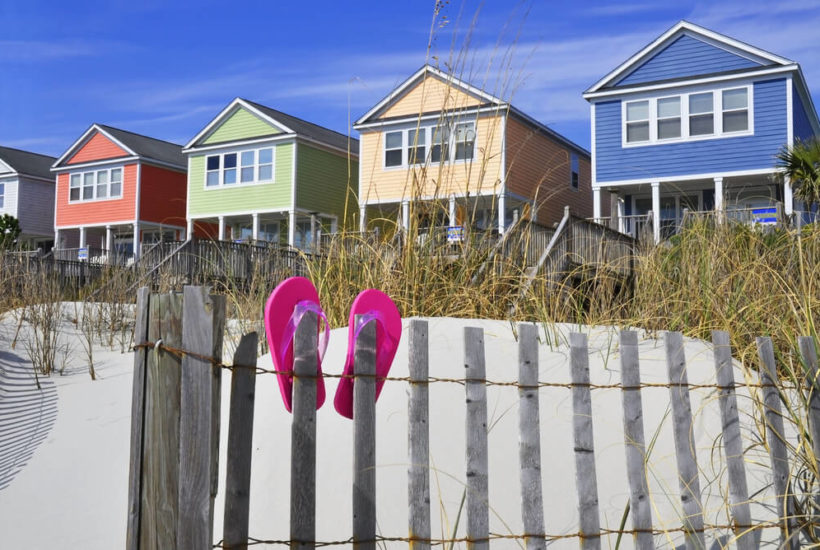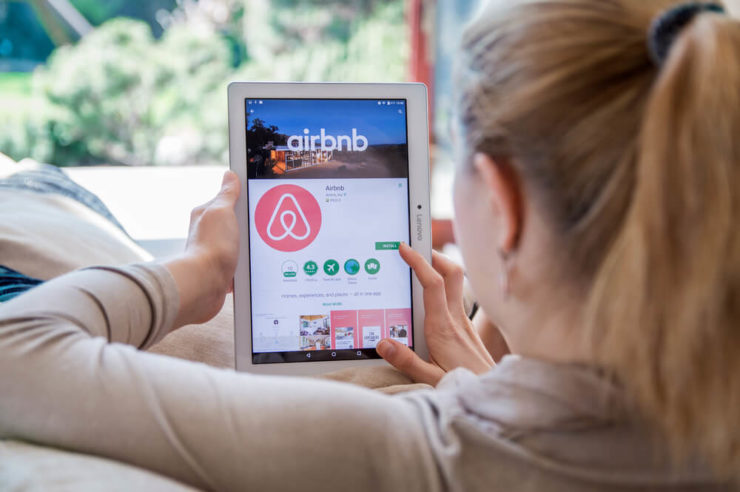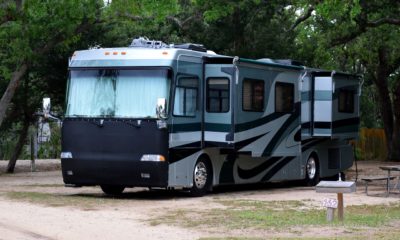Business
Choosing the best vacation rental online
With staged photos and flowery language, the vacation rental descriptions you find online often promise everything you could possibly want. But the rentals don’t always deliver.

If you’ve ever booked a rental house or apartment online, you probably know what I mean. Wide-angle lenses make a condo appear roomier than it is, and the promotional text conveniently omits the six-lane highway running through the backyard.
This is the time of year when vacation rental decisions are being made for the summer, so chances are you’re looking at properties on Airbnb, HomeAway or TurnKey, and you don’t know what to believe. Are they telling the whole truth?
The industry has developed several new ways to determine whether a rental is up to par. And experts say there are additional ways to spot a property that’s faking it.
For example, Airbnb last year launched a new “Plus” designation. To qualify, a host must receive at least 4.8 stars out of 5. The home-sharing site sends inspectors to such properties to monitor “comfort, consistency and design,” reviewing linens, bed comfort, bed and bath products, and WiFi speed. However, being “Plus” is about more than passing an inspection.
“Airbnb Plus hosts have impeccable style,” spokeswoman Rachel McAllister says. “With elegant design and personal character, the homes are as welcoming as they are beautiful.”
HomeAway, which owns VRBO, has a similar “Premier Partner” badge that denotes a quality standard. “These are properties with a proven track record of success,” HomeAway spokeswoman Christina Song says. “They tend to have great ratings, high acceptance rates, and low cancellations.”
In short, think of a “Plus” on Airbnb or a “Premier Partner” designation on HomeAway or VRBO as a seal of approval.
That’s not the only way to tell if you have the real deal.
Guests rarely take the time to read carefully property descriptions, according to Jessica Vozel, who co-founded Guest Hook, a company that helps owners write them. She says you can tell a lot about a person from the tone of their write-up.
“Do they seem enthusiastic yet genuine about their property and location?” she asks. “Or do they seem like they just threw the listing together in a minute flat, with grammatical errors and vague statements about being ‘the best’?”
Sometimes you can predict a negative experience without any special skills.
“Once I read a property description that said: ‘If you don’t know how to use technology like WiFi and TV remotes, don’t even bother staying here. I don’t have time to be your tech support.’ Red flags galore,” Vozel says.
There’s also an art to deciphering vacation-rental euphemisms. For instance, “quaint” can mean decrepit. “Rustic” can mean in the middle of nowhere. “Cozy” can mean there’s no room to move. (Double-check the square-footage if you see that word.)

Airbnb added a “Plus” designation for hosts last year. For hosts to qualify, they need to have a 4.8-star rating out of 5. (Photo by Daniel Krason via Shutterstock)
When it comes to photos, experts say you should be wary of stock images that show the general area but not the specific rental. For me, alarms start to go off when I see photos taken with a professional camera using a wide-angle lens. I also click away when I see high-dynamic-range images, a special technique that shows a room in an unnaturally flattering light. It can be a sign that the owner is trying to sugarcoat a substandard property.
“Artsy photos of sun streaming in a window are all well and good,” says Jennifer Grimes, founder of Red Cottage, which manages about 60 vacation rental homes in Upstate New York. “But if there are neighboring houses nearby, or if the property is close to the road, we try to include at least a bit of that in a shot to manage expectations.”
T.J. Clark, co-founder, and CEO of TurnKey Vacation Rentals, says a virtual tour of the home with a floor plan can be valuable. These immersive online experiences walk visitors through the property, giving them a better sense of the layout and the size of the rooms and even letting them see each room from different angles.
“We’ve heard from our guests that they really want to know that what they see is what they’ll get and that they prefer to book on listings that provide a virtual tour,” Clark said.
Pay attention to the reviews, too. Look for a history of generally positive user ratings that includes some negative comments and, most important, timely responses from the owner or host. If an owner simply ignores the negative reviews or reacts in a hostile way, blaming a customer for being a bad guest, that could be a red flag.
If a rental has only a few reviews, only reviews that are more than a year old or only positive reviews, that can also be cause for concern. Last year, I rented a home in Colorado that only had positive reviews. To this day, it remains our worst rental.
Experts suggest that potential renters do one more thing: look at the home on a satellite map.
Michael Kugler, CEO of the vacation rental site Vacarent.com, vets thousands of properties in Branson, Mo. One of his pet peeves is parking on a steep incline. “I can go to Google street view and see immediately if the property is on semi-level land or not and decide from there if it will be a match,” he says.
The street view precaution is essential. I use it every time I rent a home to ensure the rental isn’t in an unsafe neighborhood. And there’s one final trick I recommend: typing the property address into a crime-reporting site like Crimereports. It will show recent police reports for the neighborhood, allowing you to make a more informed decision about the safety of the rental.
All of these strategies can help you find the right vacation rental, but there’s still a little bit of luck involved. After all, vacation rentals are among the least consistent and predictable travel products. Here’s to only happy surprises.
(Featured image by StacieStauffSmith Photos via Shutterstock)
—
DISCLAIMER: This article expresses my own ideas and opinions. Any information I have shared are from sources that I believe to be reliable and accurate. I did not receive any financial compensation for writing this post, nor do I own any shares in any company I’ve mentioned. I encourage any reader to do their own diligent research first before making any investment decisions.

-

 Fintech2 weeks ago
Fintech2 weeks agoFintower Secures €1.5M Seed Funding to Transform Financial Planning
-

 Impact Investing11 hours ago
Impact Investing11 hours agoItaly’s Listed Companies Reach Strong ESG Compliance, Led by Banks and Utilities
-

 Impact Investing1 week ago
Impact Investing1 week agoBNP Paribas Delivers Record 2025 Results and Surpasses Sustainable Finance Targets
-

 Biotech2 weeks ago
Biotech2 weeks agoTwogee Biotech Advances Industrial Enzyme Solutions for Circular Production
























